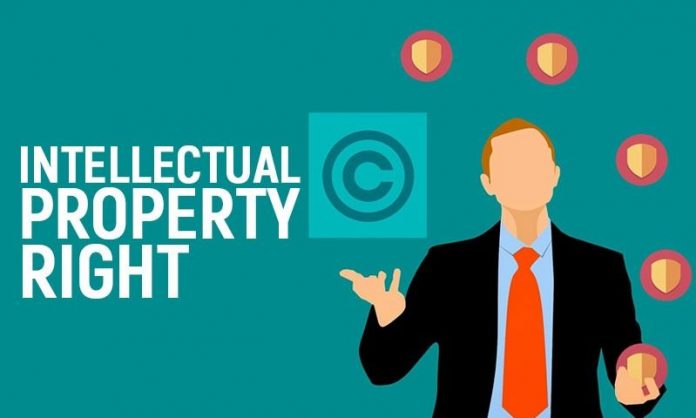This article has been written by Aradhana Singh, pursuing a Diploma in Legal English Communication – oratory, writing, listening and accuracy from LawSikho.
It has been published by Rachit Garg.
Table of Contents
Introduction
Everyone has the right to enjoy their private bubble, even celebrities and personalities. We see, without respite, the paparazzi encroach upon the celebrities’ privacy and get called out for doing so. This article will share the remedies available to the personalities to restrain the illegal use and encroachment by such people. There is an urgent need to address their grievances either by making amendments or creating a law which secures them from such exploitation.
Who is a celebrity
This terminology has no legal definition as of yet. The Latin word ‘celebritatem’ means a condition of being famous. The performers in the new emerging personalities are often distinguished from players from different sports, movie actors and the like. Efforts should be made to add the new-age personalities coming from Instagram, Tik-Toks, YouTube, Meta-verse, Twitch and other Avatars emerging from deep fakes (with appropriate permissions).
Indian legislation does not define celebrity, but performers are defined in Section 2(qq)[ii], included by a 1994 amendment in the Copyright Act, 1957. It is important to know that all performers are not celebrities and any celebrity may not be a performer at all. This fine line differentiation must be kept in mind while making redressal systems for the exploited persons.
Outline of rights for a celebrity or personality
Any celebrity or personality has surely a set of rights using which they can defend themselves broadly categorising the protections as follows:
a. Publicity,
b. Privacy, and
c. Personality Rights
Remedies available in India
Constitutional Protection
Celebrities have the right to control their image and likeness, which includes their name and voice. They also have the right to decide when they want to be photographed or filmed by media outlets. There are many cases where celebrities have been humiliated, harassed or their privacy invaded.
India has a long history of respecting the right to privacy and dignity of every citizen. India is a country that respects its culture, traditions and values. Article 21 of the Indian Constitution provides protection not only for life but also protects personality rights. Article 19 also plays an important role in giving personalities the freedom of speech and expression, and that can be seen in the case of R Raja Gopal v State of Tamil Nadu (1994), which revealed that the Right to Privacy has two distinct aspects-
First, the general notion is to bring forward the tortious action for damages for the illegal, unlawful attack on privacy and second, the constitutional recognition given to the Right to Privacy so that individual privacy remains lawfully protected.
In Shivaji Rao Gaikwad (aka Rajinikanth) v. Varsha Production (2015), the Madras High Court received the case which was filed by Actor Rajnikanth to protect his personality rights. It was well recognised by the courts and in their judgements, even though it is not codified properly in India. It also includes the right to be forgotten.
If there is an attack on privacy, that is a legal injury and its redressal is already in existence because it is compensation for mental suffering caused by such violation. Personality rights are also liable to be redressed and codified so that exploitations are kept in checks and balances.
Personality rights, in essence, are the right to protect the privacy of a person’s private life to whatever extent it can be. The violation begins when the person’s life has ceased to be private before its publication and can be withdrawn as soon as possible if certain consideration is not paid.
With all said and done, the Constitution also restricts by placing the following two conditions:
a. The restriction must be for the particular purpose as mentioned in the clause permitting the imposition of the restriction on that particular right, and
b. The restriction must be reasonable.
Article 19(1)(a) secures every citizen the right to freedom of speech and expression. It suggests that it does not allow anyone to say whatever, whenever and wherever one likes. It needs no emphasis that a free press, which is neither directed by the executive nor subject to censorship, is a vital element in a free State; in particular, a free, regularly published political press is essential in a modern democracy.
It is a fact that liberty of the press also includes printing without a licence, subject to the consequence of law as stated in the classic case of R v Dean of the State Asaph (1784).
Intellectual Property Rights
It becomes very necessary to understand that intellectual property rights prevent the unauthorised use of the concerned celebrity or personality. Though it is not available ostensibly, the following Acts and provisions under IPR have been discussed:
Copyright
No person can enrich themselves from others’ hard work. The right of publicity vests on the person alone and that person alone has the right to gain profit from it. This was held in ICC Development (International) Ltd v Arvee Enterprises (2003). Copyright would come to rescue where there is a clash between interest and morals, this was held in a landmark case of Amarnath Sehgal vs Union of India and Others (2005).
In the case of Phoolan Devi v. Shekhar Kapoor and Ors (1995), the court came to her rescue as the details of her life were shown in a very distorted manner putting her public image in a dire position. It was held that there would be serious implications if a private life of an individual is put in front of the public without proper scrutinisation. Careful deliberation must be made to protect any celebrities’ image and name as such rights are their Constitutional right.
Trademark
In many cases, wherein an individual or a company has registered a domain name, and such name becomes similar or identical to any other party and the owner illegally or malevolently tries to harm such person’s or party’s name for unjust enrichment or gain will be termed as a cyber squatter. Meanwhile, in the case of infringement of his right, Mr Arun Jaitley contended that the defendants had bought the domain name after his name and had done the domain name registration www.arunjaitley.com. The Delhi HC observed that people with well-known appearances have a higher footing than commercial rights. Thus an action in tort was issued against such infringement.
Section 14 of the Trade Marks Act, 1999 would be attracted if anyone violates or illegally uses a name or misrepresents or misuses them to gain profit off of a living or a deceased person. The same can be defended under Section 35 when the same act is done under a bonafide belief.
Torts and Passing-off
The tort of misuse of personality or celebrity rights can be distilled into three aspects:
- The enrichment of the plaintiff’s personality for monetary purposes.
- The personality violation so enriched is caught and is identifiable by the public at large.
- The advertisement or use by the plaintiff is hinted at.
In the K.Ganeshan case (2016), the court allowed the tort of publicity as the deceased journalist could not be easily identified by name by the public. The jurisprudence in India concerning the right of publicity deals with privacy at the base but is made in very certain cases only. In reality, it becomes difficult when the celebrity uses the same right for negative publicity and wants to sue for the same. Tortious liability is given as it provides much higher damages, thereby tending to be misused. The above case is the landmark precedent which allows the family/estate of a deceased person to exercise their right to sue for the right to publicity on behalf of the deceased where there is publicity related to them.
The same was iterated when the right to publicity and its assignment for a sportsman Mr Akhilesh Prakash Paul, who had started to live his life again through a choice of sport, soccer and left the life of crime.
Passing off is another action which can be used against any violation done to a business or goodwill or reputation of a person caused by misuse by another party who is willfully trying to pass off his goods or business as goods of another. Thus, passing-off acts as a guardian to a person’s identity. This is an active defence used to protect oneself against typical cases of impersonation by the culprit. The right of publicity is assignable to a private limited company as it was exclusively assigned to the plaintiff, who further assigned it to the company. This was again recognised by the court in the Super Cassettes case (2008).
Information Technology Act
Section 43 also prevents morphing; it is a clear violation of the Information Technology Act, 2000. Sections 67 and 67A of the ITA punish persons who upload sexual and obscene material over the internet in electronic form. Section 66E also prevents voyeurism so that no one is allowed to blackmail any person to steal from them or post any private picture without their permission. The IT Act not only punishes people but also prevents companies who circulate electronic media from breaching the confidentiality of persons, which also include personalities and celebrities.
Conclusion
A critical study of the Doctrine of Privacy by Warren and Brandeis had made significance in moulding celebrity right in other countries. Fans tend to follow their celebrities and get inquisitive about each action, but the same should not put the person in a situation of embarrassment, insecurity and humiliation.
For the first time, personality rights in the form of the right to privacy were recognised by the Supreme Court in the landmark judgment of R. Rajagopal vs. State of Tamil Nadu (1994). It was clear that if someone tried to peer into an individual’s life, that someone shall meet with an array of consequences. It is a known fact that celebrities make use of publicity which is based on benefits, but it largely remains a matter of privacy, whether personal or professional. Drawing a line becomes essential when it comes to clicking a picture of a celebrity who has just come out of a car and is adjusting their clothes. That is nothing but the invasion of their privacy in a very awkward manner. Celebrities and paparazzi have a bittersweet relationship, it comes down to the ethics of the photographers as to when and where to click a photo with/without the celebrity’s consent. The concept spreads to the fact that every person has the right to be let alone and be forgotten while allowing them to profit at their own pace and understanding. India lacks concrete legislation to protect celebrities or personalities, given the sudden boom of internet-based accreditations of talents, the need to narrow down the scope of freedom of speech and expression is now felt more than ever as celebrity rights were granted by courts as well.
References
- https://copyright.gov.in/documents/copyrightrules1957.pdf
- https://www.mondaq.com/india/privacy-protection/801764/protection-of-celebrity-rights-personality-rights-in-india
- http://groups.csail.mit.edu/mac/classes/6.805/articles/privacy/Privacy_brand_warr2.html
- https://www.scconline.com/blog/post/2022/01/24/a-cause-celebre-publicity-rights-in-india/
- http://groups.csail.mit.edu/mac/classes/6.805/articles/privacy/
- https://timesofindia.indiatimes.com/entertainment/hindi/bollywood/news/no-pictures-please-the-curious-case-of-celebs-paparazzi-and-privacy-bigstory/articleshow/89353615.cms
Students of Lawsikho courses regularly produce writing assignments and work on practical exercises as a part of their coursework and develop themselves in real-life practical skills.
LawSikho has created a telegram group for exchanging legal knowledge, referrals, and various opportunities. You can click on this link and join:
Follow us on Instagram and subscribe to our YouTube channel for more amazing legal content.
 Serato DJ Crack 2025Serato DJ PRO Crack
Serato DJ Crack 2025Serato DJ PRO Crack











 Allow notifications
Allow notifications


